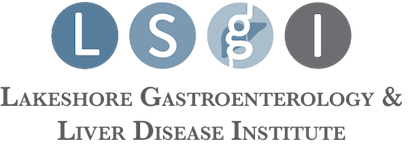Experts in Compassionate Care
Lakeshore Gastroenterology and Liver Disease Institute doctors are the experts in compassionate patient care.
Your Doctor Has Recommended You Get A Colonoscopy
A Colonoscopy is a procedure Doctors use in both the screening and detection of a variety of conditions, including colon cancer.
Colorectal cancer rates are decreasing. This is largely due to colonoscopy screenings.
According to the The American Cancer Society:
"Colorectal cancer rates are decreasing for a number of reasons. Colorectal polyps are now being found more often through screening* and removed before they can develop into cancers. Polyps are being found earlier when the disease is easier to treat. In addition, treatment for colorectal cancer has improved over the last few decades. As a result, there are now more than 1 million survivors of colorectal cancer in the United States."
What is a Colonoscopy?
Colonoscopies allow for colorectal colon polyp detection, a necessary procedure in the prevention of colon cancer. Colon cancer is the 2nd common cause of death in the United States.* This procedure is widely recognized as the "Gold Standard" for colon cancer prevention because of the ability for doctors to view colon polyps. The exam also offers the ability to detect a variety of conditions.
A Colonoscopy is an exam that views the inside of the bowel or large intestine (colon), using a tool called a colonoscope. The colonoscope is a small flexible tube attached to a camera. This exam allows doctors the ability to look at the entire colon while performing biopsies or necessary polypectomy (polyp removal) in the same session.
WHAT HAPPENS AFTER YOUR CONSULTATION?
After your appointment, your Doctor will discuss an individual treatment plan with you and you will receive a visit summary. In addition to the appointment notes, you may receive a medication and a test order summary.
We will give you written information on how to prepare for your colonoscopy including the steps you need to take before and after the procedure. At that time we can give you with a summary about a variety of conditions related to your circumstances.
Will I have Anesthesia during my Colonoscopy?
Based on patient preferences, a colonoscopy can be performed with or without anesthesia.
How long does the procedure take?
A colonoscopy typically takes about 30 minutes to an hour. Your doctor will review the results of the colonoscopy with you.
What is a Flexible Sigmoidoscopy?
While evaluating our patients, based on your signs and symptoms, we will assess if a colonoscopy or a flexible sigmoidoscopy is the best option. In certain conditions, a flexible sigmoidoscopy can be used as an alternative option to a colonoscopy procedure.
Flexible sigmoidoscopy evaluates the colon at the lower part of your intestine, closest to your rectum. Similar to a colonoscopy, this procedure can also diagnose colon diseases, inflammation, polyps or infections. The procedure can be performed with or without anesthesia.
Colonoscopies are exams used in the diagnosis and treatment of conditions or specific symptoms.
COMMON CONDITIONS
- The ability to identify possible colon cancer.
- Perform a biopsy for tissue samples for further analysis
- Removal of abnormal growths (polyps)
WHAT SYMPTOMS DOES A COLONOSCOPY HELP TO EVALUATE?
Changes in bowels or bowel routines
Chronic constipation
Chronic diarrhea
Colitis
Colon cancer
Constipation
Crohn's Disease
Diverticulosis
Hemorrhoids
Irritable Bowel Syndrome
Inflammatory Bowel Disease (IBD)
Rectal bleeding or blood in the stool
Other intestinal problems
Prevention Improves Your Comfort
If you are experiencing changes in bowel frequency or consistency, these symptoms and can look like other medical conditions, which may need medical intervention. If you are having issues with your bowels, make an appointment with Lakeshore Gastroenterology and Liver Disease Institute so we can provide an expert diagnosis and treatment plan. Your Doctor can review a healthy diet to help regulate your bowels, including eating a variety of healthy foods, drinking plenty of fluids, and exercise, which are all daily activities you can do. It is important to regulate your bowels to stay comfortable and healthy. Let’s talk about this during your appointment.
AFTER YOUR APPOINTMENT
After your appointment you will receive a visit summary. We include everything you need to know about any tests or procedures your doctor has ordered. In addition to the notes from your visit, we can give you more reading about a variety of conditions related to your circumstances.
Additional reading
For those patients who want to know more, we have linked to articles with more information..
National Library of Medicine: Colorectal Cancer Screening Options
American Cancer Society: Key Statistics For Colorectal Cancer

